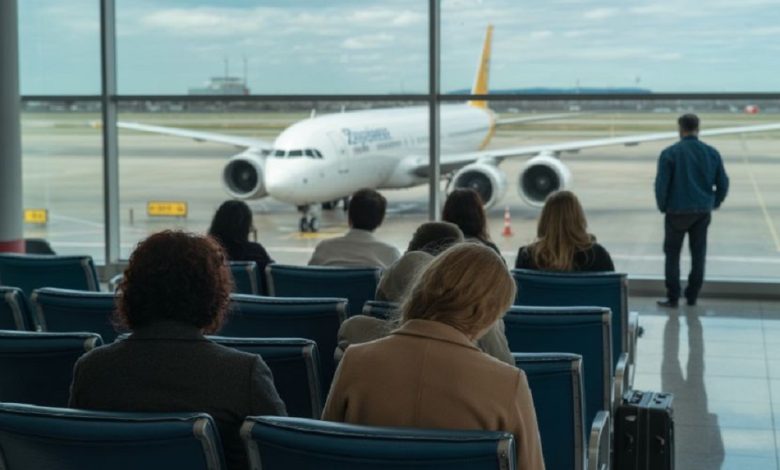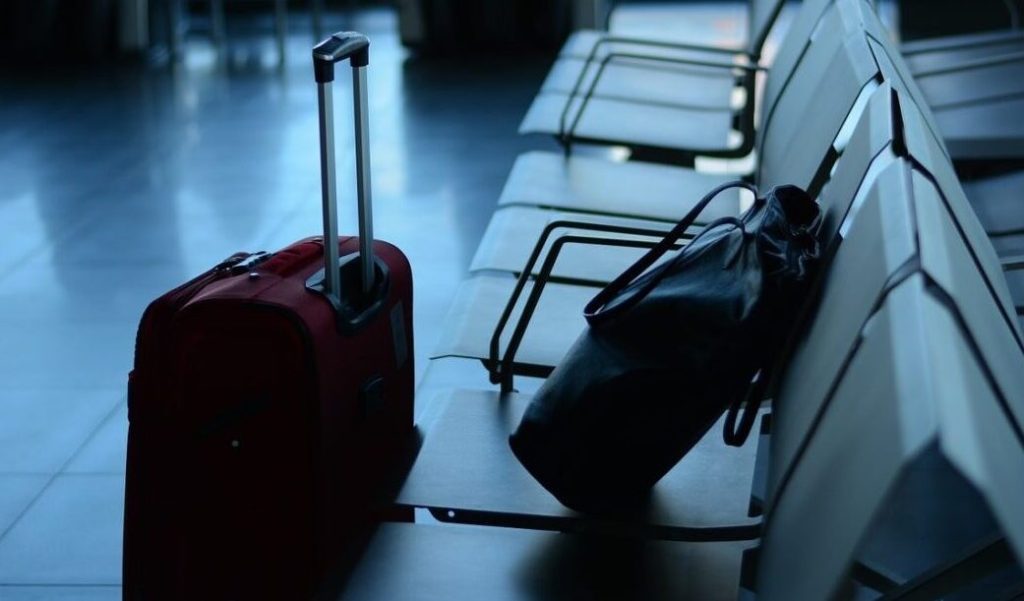U.S. Airports Face Major Flight Delays as Air Traffic Controller Shortages Deepen Amid Government Shutdown
U.S. Airports Face Major Flight Delays as Air Traffic Controller Shortages Deepen Amid Government Shutdown

Major U.S. aviation hubs are experiencing severe flight delays as air traffic control systems face an acute staff shortage worsened by the ongoing government shutdown. This situation has led to ground stops and long waiting times at major airports in New York, Houston, and Washington — sparking widespread concern about further disruptions, especially as the holiday travel season approaches.
The Federal Aviation Administration (FAA) confirmed that operations at several airports, including those in New York, Washington, Newark, and Houston, are suffering major setbacks due to a lack of air traffic controllers. This critical problem has been intensified by the current federal government shutdown, now entering its third week, which has left thousands of essential aviation workers unpaid.
Reports indicate staffing challenges at ten different sites, prompting the FAA to issue ground-stop orders at Houston Bush and Newark Liberty International Airports. Passengers at Ronald Reagan Washington National Airport have reported average delays of 31 minutes, while those at New York’s LaGuardia face even longer wait times averaging 62 minutes.

Federal Shutdown Deepens Air Travel Chaos Across Major U.S. Airports
The impact of this unprecedented situation is far-reaching. Around 13,000 air traffic controllers and an estimated 50,000 Transportation Security Administration (TSA) officers continue their vital work without receiving their regular paychecks. This precarious financial situation raises fears that growing numbers of these essential workers may not be able to continue showing up for duty, especially as many are about to miss their first full paycheck. Data from flight-tracking sites shows that more than 4,200 flights across the United States have been delayed recently, with more than 15% of flights affected at Reagan, Newark, and LaGuardia, and 13% at Houston Bush.
The White House has expressed deep concern about the outlook for air travel. A spokesperson warned of a high likelihood of “major flight delays, disruptions, and cancellations at major airports across the country during this holiday season,” underscoring the severity of the ongoing crisis. The federal shutdown has become a major point of contention, with political leaders from both sides trading blame over its continuation. This political deadlock directly affects the operational stability of the nation’s air transport infrastructure.
Unions representing aviation workers and major airlines have collectively called for an immediate resolution to the government shutdown. They emphasize the urgent need to restore stable working conditions and maintain the continuous flow of air traffic. The current crisis echoes a previous 35-day shutdown, during which rising absenteeism among controllers and TSA officers led to longer wait times at checkpoints and forced reductions in air traffic — especially at critical hubs like New York and Washington. That historic event eventually pressured lawmakers to reach an agreement.

Beyond the immediate effects of the shutdown lies a long-standing structural problem: a chronic shortage of air traffic control personnel. The FAA currently estimates a shortfall of around 3,500 controllers below target staffing levels. Even before the current shutdown, many controllers were working mandatory overtime and six-day weeks to manage workloads — highlighting a systemic challenge that predates today’s political gridlock.
The combination of staffing shortages and financial strain caused by the government shutdown has created a complex and challenging environment for the aviation industry and millions of passengers. The ongoing uncertainty continues to cast a shadow over future travel plans, making swift solutions to both staffing and political issues a top priority for all stakeholders.
Immediate attention is required to prevent further escalation of travel problems — especially as millions of Americans prepare to fly for the upcoming holidays. The ripple effects of these delays extend far beyond individual travelers, impacting airlines, logistics, and the broader economy.
Ensuring the well-being and steady pay of essential air traffic controllers and security staff is not only a matter of fair labor practices but a fundamental requirement for the reliable operation of the nation’s air transport system. Addressing the root causes of both the government shutdown and the chronic air traffic control shortage is critical to restoring stability and public confidence in the skies.



